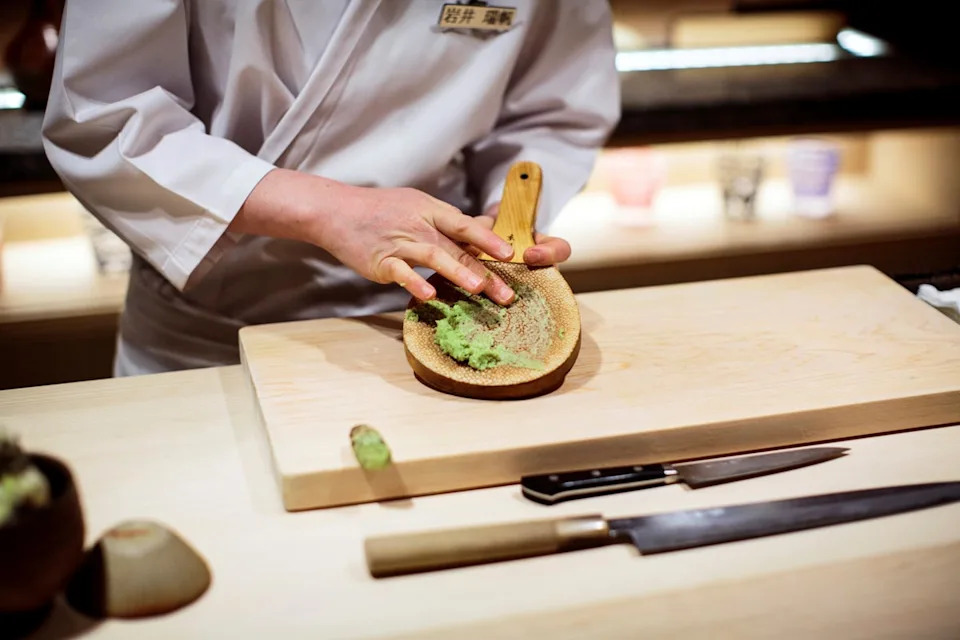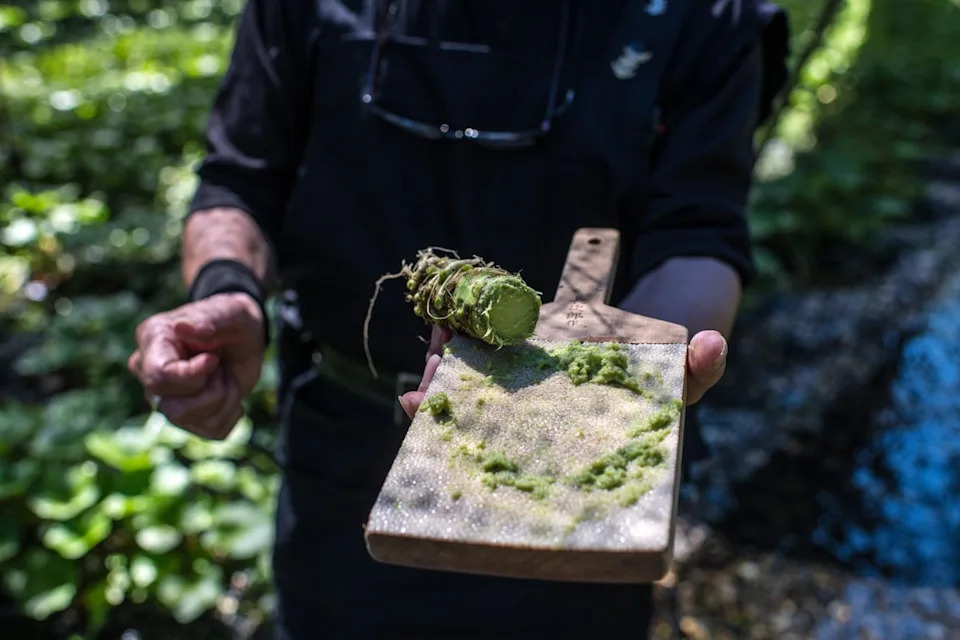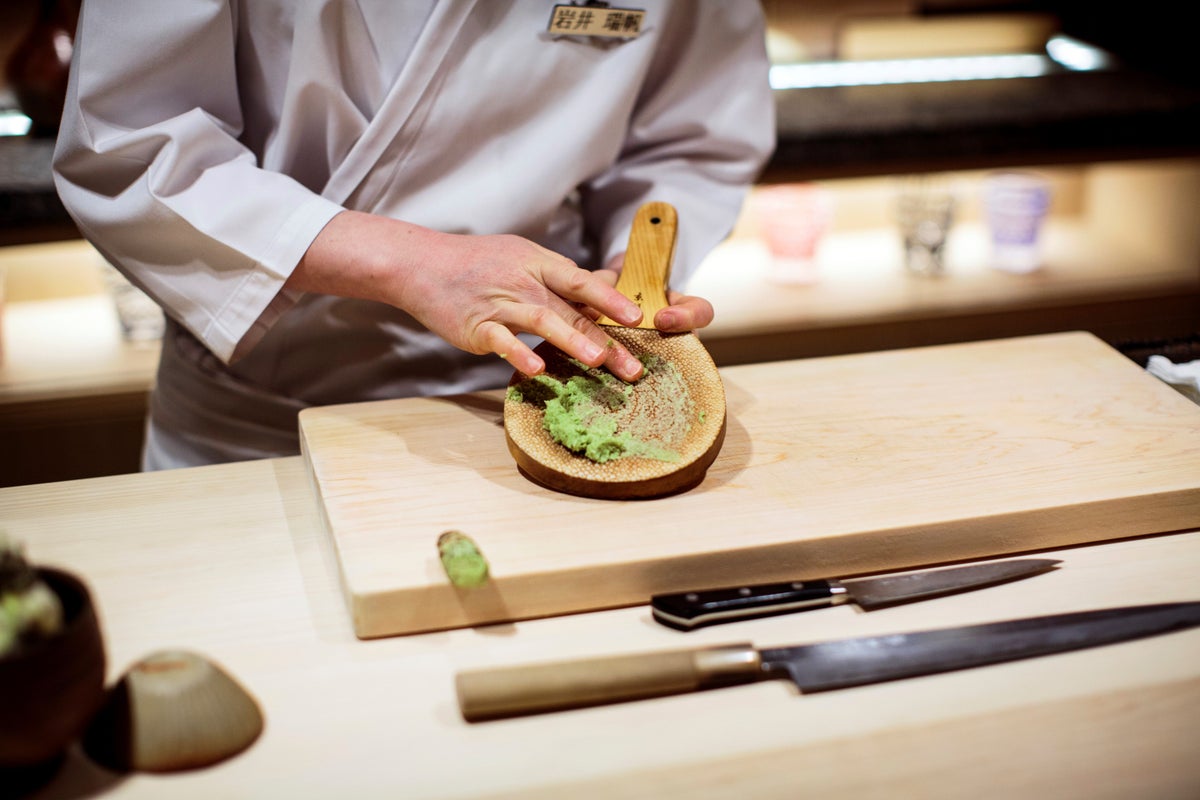Sushi lovers may think they know everything about wasabi. But, the eye-watering condiment comes with some life-lengthening health benefits that are often unknown.
Used on the Japanese dish for hundreds of years, the chartreuse-colored spice can fight harmful inflammation and even help to prevent cavities.
That’s because the pungent staple has antimicrobial properties, Dr. Hideki Masuda, a former research director at Ogawa and Company of Japan, previously told The New York Times.
He said the wasabi plant contains compounds known as isothiocyanates that give it is stinging taste and stop bacteria growth. The plant must be grated into a pulp to release them.
”Some scientists believe these compounds break down the enzyme of the bacteria’s protein, or it might actually kill the bacteria itself by suffocating it,” Masuda explained.

Eating wasabi can help fight harmful bacteria and inflammation that leads to chronic disease (AFP via Getty Images)
The same compounds have also been associated with lowering the risk of cancer, according to researchers, and have anti-inflammatory properties.
Chronic inflammation has been tied to developing autoimmune, neurodegenerative, gastrointestinal, and heart diseases, as well as certain cancers.
Maintaining a healthy immune system is crucial to staving off disease and eating wasabi can help keep immune health strong.
It “contains a lot of vitamin C, which is an antioxidant that protects your cells from free radical damage,” Northwestern Medicine Delnor Hospital bariatric dietitian Audra Wilson told USA Today.
Just a pea-sized dab of wasabi goes a long way for many, and that’s all you need to reap the rewards of the spice.
Eating any more could actually irritate the nose, stomach, or mouth, registered dietitian Julia Zumpano also told the site.
But beware: you may be getting faked out.
Imitation wasabi is mass produced in the West and usually just has horseradish, mustard powder, and green food coloring.

The benefits of wasabi come out when the plant is grated into a pulp (Getty Images)
People can get the real stuff, which is farmed in Asia, at most markets. The plants look like long, skinny pineapples.
You can serve it with sushi, but it also goes well in a salad dressing or as a marinade for meat or tofu.
Adding it to your next meal may even give you a brain boost.
Japanese researchers have found consuming wasabi is linked to improved short- and long-term memory.
“The improvement was really substantial,” Rui Nouchi, an associate professor at Tohoku University, told CBS News.

